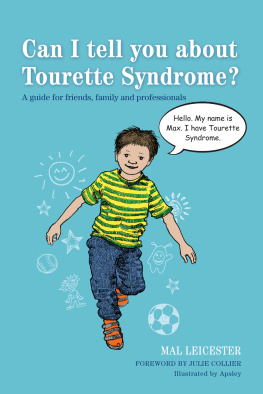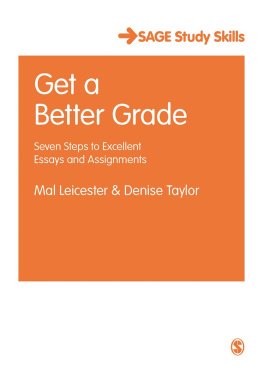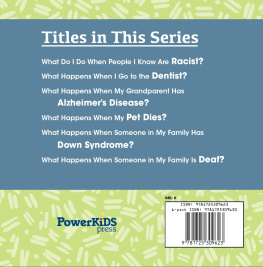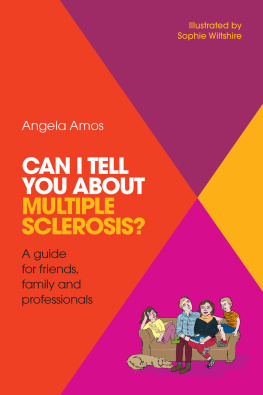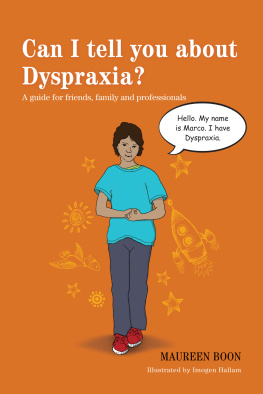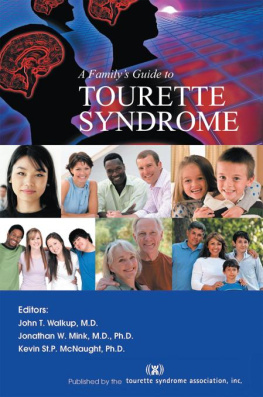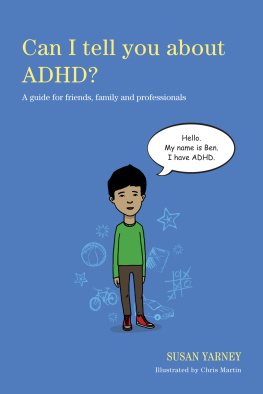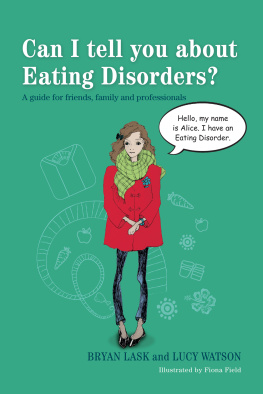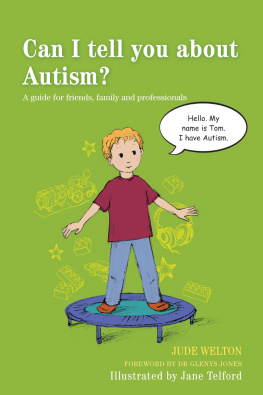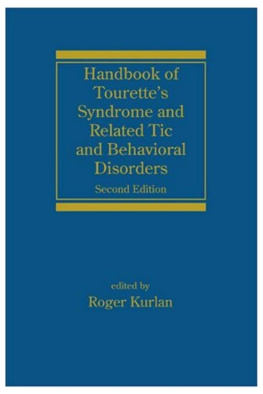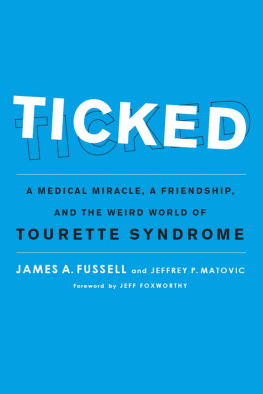Acknowledgements
I wish to thank Sarah Tanner for the efficient preparation of the manuscript, Lucy Buckroyd for her advice and encouragement and Tony Phillips-Smith (Apsley) for his super illustrations. For helpful comments I am also indebted to Julie Collier, Suzanne Dobson, Jane Fowlie, Joe Kilgariff and Roger Twelvetrees.
First published in 2014
by Jessica Kingsley Publishers
73 Collier Street
London N1 9BE, UK
and
400 Market Street, Suite 400
Philadelphia, PA 19106, USA
www.jkp.com
Copyright Mal Leicester 2014
Illustrations copyright Anthony Phillips-Smith (Apsley) 2014
Foreword copyright Julie Collier 2014
All rights reserved. No part of this publication may be reproduced in any material form (including photocopying or storing it in any medium by electronic means and whether or not transiently or incidentally to some other use of this publication) without the written permission of the copyright owner except in accordance with the provisions of the Copyright, Designs and Patents Act 1988 or under the terms of a licence issued by the Copyright Licensing Agency Ltd, Saffron House, 610 Kirby Street, London EC1N 8TS. Applications for the copyright owners written permission to reproduce any part of this publication should be addressed to the publisher.
Warning: The doing of an unauthorised act in relation to a copyright work may result in both a civil claim for damages and criminal prosecution.
Library of Congress Cataloging in Publication Data
Leicester, Mal, author.
Can I tell you about Tourette syndrome? : a guide for friends, family and professionals / Mal Leicester ;
foreword by Julie Collier ; illustrated by Apsley.
pages cm
ISBN 978-1-84905-407-2 (alk. paper)
1. Tourette syndrome--Juvenile literature. I. Apsley, illustrator. II. Title.
RC375.L45 2014
616.83--dc23
2013030784
British Library Cataloguing in Publication Data
A CIP catalogue record for this book is available from the British Library
ISBN 978 1 84905 407 2
eISBN 978 0 85700 806 0
To my grandson, Aidan David Dover, with love.
Facts about Tourette Syndrome
Tourette Syndrome is named after Georges Gilles de la Tourette, a French doctor who published an account of nine patients with TS in 1885.
The exact cause of TS is unknown, though many genes seem to be involved.
Tics involve a disorder in the planning loop of the brain. This is the same loop involved in obsessive-compulsive disorder (OCD)/anxiety.
There are between 200,000 and 350,000 people with TS in the UK.
Words that come out in vocal tics are not the persons thoughts.
TS can lead to trouble with unaware teachers, policemen, bus drivers, etc.
For TS to be diagnosed by a doctor, both movement and vocal tics need to be present for a minimum of 12 months.
Treatments include medication, habit reversal training, relaxation techniques such as meditation, yoga and exercise. There is less agreement about benefit from homeopathy, acupuncture or diet adjustment.
TS affects one in 100 schoolchildren.
TS does not affect IQ, although learning can be hindered.
TS occurs three to four times more often in boys than girls. (I have chosen to use he and himself rather than she and herself because more boys than girls suffer from TS, but of course these points apply equally to the girls.)
Only a small percentage of children have coprolalia (involuntary swearing and rude or racist remarks). When the offensive remarks are tics, they are not the persons thoughts and are not intended to be hurtful.
Rage may be linked to tic suppression. The teacher should talk through the rage attack with the child afterwards. Could he have let out his feelings in a different way?
Touching his own or other peoples genitals in a compulsive tic can be embarrassing and upsetting for everyone. It may be possible for the child to receive training to touch an object or less personal body part instead.
Foreword
I first met Mal Leicester at one of our Support Group meetings. She had contacted Tourettes Action looking for family support in her area and kindly volunteered to coordinate a new TA support group.
I was so excited when Mal mentioned that she was writing this book about Tourette Syndrome (TS), and I knew that with her extensive background in education and disability, together with her personal family experience of TS, it would make her the ideal author and I couldnt wait to read it!
I had a message today, from a mum I met at a recent meeting. She thanked me for organising the meeting and said how wonderful it had been to meet other parents in the same situation. She had tried to talk to her son about his tics, but found it very difficult to hold his attention. This book will be ideal for parents and children to sit and read together and for the whole family to explore life with TS. Children will relate to Maxs story and adults will gain more information and insight into this condition. I know it will help so many similar families in the future.
TS has such a stigma attached to it and even now, in the 21st century, it is misunderstood by many. Some see it as the swearing disorder and someone once asked me if it was a real condition! We have such a long way to go with raising awareness and this book is another big step in the right direction.
I have had the great pleasure of meeting lots of people of all ages with TS, most of whom are talented, intelligent and creative people, who want to be accepted for who they are as individuals and for others to see past their tics.
I would like to see a copy of this book in the library of every school in the UK. It will help teachers to gain a greater understanding and Maxs story would be ideal for peer group awareness in schools.
Its up to all of us to help raise awareness, to break down the barriers and to reduce the stigma, so that people living with TS can lead their life to the full, without feeling isolated and let down by our society.
Julie Collier
Groups Manager
Tourettes Action
Can I tell you
about Tourette
Syndrome?
How schools can help
Apply rules flexibly (this means do not expect everyone to follow every rule. Their problems may not fit in with that rule).
Provide a private place for time out and for tic release particularly if the tics become overwhelming.
Let every member of staff in contact with the child, not just the form teacher and Special Educational Needs Coordinator (SENCO), know about a childs Tourette Syndrome.
Schools should have a policy about giving pupils their medication.
When a child with TS moves to secondary school he may need extra support.
Individual education plans should take account of a childs TS.
If the child is being teased provide extra supervision at break and at lunchtime.
Provide a link person who will talk to the child each week and ask about any problems he may have.
Where appropriate, such as when vocal tics are loud, excuse the child from stressful situations such as a quiet assembly.
How teachers can help
Dont tell the child to stop ticcing.
Dont punish children for what they cannot help.
Offer short breaks in lessons.
Give extra time. Some things take longer for children with Tourette Syndrome.
Be aware that tics may make writing difficult.
The feeling of being different from other children can result in low self-esteem. When possible reward the child with praise.
Some children suppress their tics at school and tic much more often when they go home.
Medication for tics may cause sleepiness and lack of energy.
Give longer time to complete tasks and exams.
Make sure children with TS are partnered with supportive, understanding and kind buddies.
Next page
